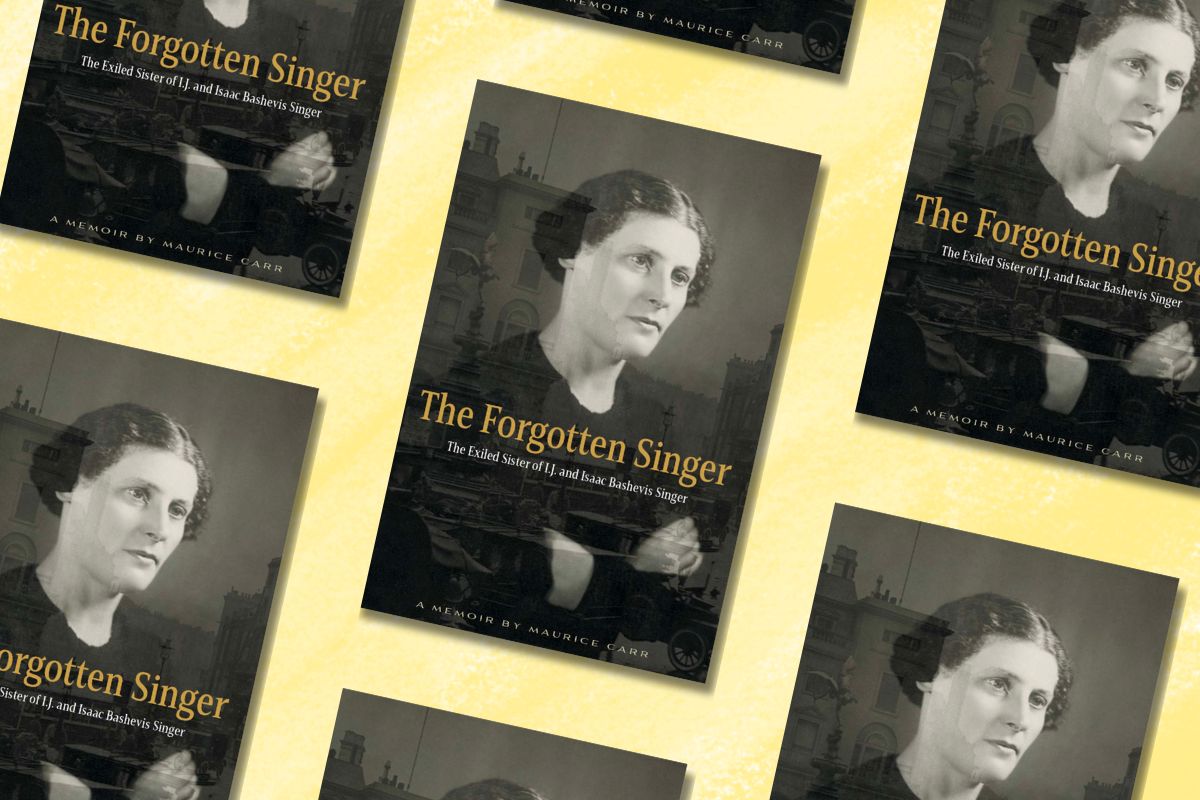As a kid, I had a secondhand volume of Isaac Bashevis Singer’s “Stories for Children” which quickly became one of my favorite books. I loved reading about Schlemiel’s blunders and failed schemes, the Elders of Chelm and their attempts to bring justice to a criminal carp (they eventually decided on drowning as a suitable punishment for the fiendish fish) and more. The stories made me laugh, and I loved that seemingly everyone in Singer’s literary universe was Jewish, just like me. Beyond our shared faith, I didn’t know much about the author himself, though.
I certainly never knew he had a sister who was also a writer. But recently, that changed.
Maurice Carr’s “The Forgotten Singer: The Exiled Sister of I. J. and Isaac Bashevis Singer,” with an introduction by Maurice’s daughter Hazel, tells the story of Esther Singer Krietman through the eyes of her son. Esther, sister of Isaac, was a writer in her own right, a refugee who fled Antwerp for London during the First World War, a devoted and fiercely protective mother and more. Her story has only now been translated into English (although still well-seasoned with Yiddish phrases) and is very much worth reading.
For someone who associated the Singer name with cozy Jewish comedy and fairytales, this book, which takes the form of 46 vignettes from the author’s memories, came as a surprise. Esther, as seen through her son’s eyes, is loving, resourceful and ferocious.
One of the volume’s earliest scenes involves an Esther exhausted from the struggles, material and emotional, of refugee life in 1910s London, using her last remaining luxury items to convince a refugee aid organization that her family is wealthy enough to take seriously. Her plan is a success, and she’s relieved to have secured some comfort for her son. Later on, when Maurice talks about her fiercely possessive attitude towards him (Esther’s own granddaughter, Hazel, suspected her parents’ marriage and her birth devastated her grandmother, who’d hoped to keep her son with her for life), it’s easy to see an attitude motivated more by trauma than any stereotype of the “overbearing Jewish mother.”
Esther would go on to publish novels, weather the dissolution of her marriage, build and maintain complex relationships with her family and, from London, watch her son enter the family trade of writing. Although the book bills itself as the story of Esther, the “forgotten Singer,” it’s at least as much the story of Maurice, who reads as one of the last witnesses to the Yiddish literary culture of prewar Europe.
It’s no coincidence that the volume opens in World War I and ends with Maurice, a journalist, traveling to Germany to cover the trial of the Nazi war criminal Ilse Koch. There are many themes in the volume, including family, mental illness, what it means to forge a creative career and more, but one that stuck the most with me was the look at not only a forgotten Singer, but a culture — and a world — in danger of being forgotten. My family background is quite similar in some ways to Carr’s, and I found myself fascinated by the descriptions of food, clothing and cultural pursuits as much as anything the characters were up to.
While the famous Isaac makes several appearances (and fair warning, they are not flattering), it feels almost against the spirit of the book to discuss him too much. I was frankly disappointed that the epilogue was a wrapping-up of Isaac and Maurice’s relationship — after spending so much time with Esther, I’d have rather she took center stage in the book’s final lines. But these are trivialities.
While “The Forgotten Singer” is billed as Maurice’s memoir, and reads as such, it’s also an attempt to remind the world of a fearsome, talented, loving, sad, possessive, remarkable woman. Reading it made me think, sparked my curiosity, and got me to look up more than a few Yiddish phrases. If you decide to pick it up, don’t expect a jolly ride with Schlemiel and the denizens of Chelm — but do expect to learn something new.








